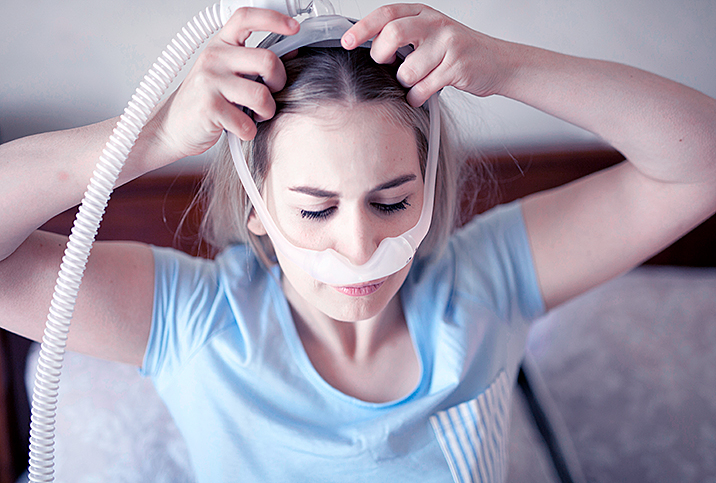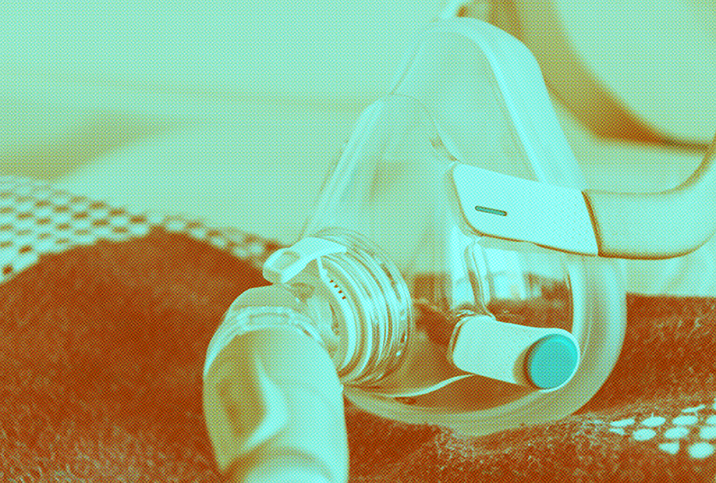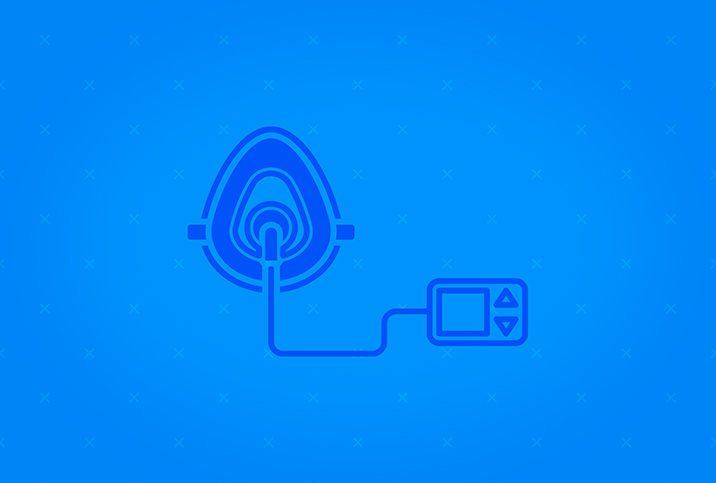The Trials and Tribulations of Living With a CPAP Machine

Of all the deciding factors to consider when seeking a romantic partner, whether they suffer from sleep apnea shouldn't figure too much in the equation. You really only encounter the condition when spending the night with someone, at which point you may also encounter their CPAP machine.
While they may want to accommodate you by not using their machine, this isn't a safe or healthy choice. CPAP, or continuous positive airway pressure, helps a person with obstructive sleep apnea breathe normally during the night, but an untreated case can lead to multiple health concerns, including sudden cardiac death. Devin Burke, a health and performance coach in Delray Beach, Florida, explained it's all too easy to avoid using the treatment.
"Sleep apnea essentially is the tongue in the back of the throat that causes what's called a stop-breathing event," Burke said. "The purpose of a CPAP is to keep the airway open, and it's actually [got] the highest rate of noncompliance [of medical devices] because it's so uncomfortable."
It's hard to cuddle with that hose...
If you are emotionally invested in a person or generally just a considerate individual, it only makes sense to work with your partner to overcome the CPAP hurdle in the bedroom.
Robin Stoltman is a motivational speaker, hypnotherapist and healer based in Watertown, South Dakota. She has been a CPAP user for more than a decade and said the annoyance her machine entails doesn't come close to outweighing its importance.
"The bothersome part for the partner is that the hose does get wrapped around the person's head while sleeping at night sometimes, which makes the hose produce less airflow and will wake up both people in bed, usually," Stoltman said. "However, if you love the person you are with, you understand that sleep apnea is a dangerous medical condition that leads to heart failure, increased weight, chronic fatigue, pain and many other issues."
Two sets of limbs are usually enough to cause a tangle in most beds, so the addition of a hose may feel like a suffocating third wheel. But don't lose hope: Marc Werner, a mattress inventor based in Plantation, Florida, said the real key to an easier bedtime experience might be a process of adjustments. Plus, your first CPAP machine may not necessarily be your perfect CPAP machine.
"You can also try to find a solution that might work better for them," Werner advised. "This could be a different mask, a different position of the CPAP machine or even changing the time they use it."
Mask fit is essential and may require use when awake to fully acclimate to it. If one method of mask-wearing doesn't suit you, try repositioning the mask to a doctor-approved angle. If cuddling is impeded by the hose, consider a new pillow arrangement using body pillows or different positions. If one person is typically the big spoon, reverse positions and see if it helps.
Be positive
Your partner may feel discouraged or self-conscious; positive reinforcement is the best way forward. Stoltman said love and commitment were huge parts of her journey with a CPAP machine and, later, her husband's.
"To encourage my husband when he first got diagnosed with sleep apnea, I would tell him how I feel about him using it," she explained. "An example is saying how using it allows me to sleep better so I am a happier wife, allowing him to have a happier life. I also told him I want to get old together, so if he dies from nonuse, my dream won't happen. It does invoke the feeling part of the brain to hear how much I value his life to wear his CPAP, as I do. I have personally known three people to die from sleep apnea for not using the equipment."
It may sound extreme, but Stoltman is accurate in gauging the stakes for her and her partner's health, and keeping in mind what's most important can offer perspective. With evolving technology, it may not take as much convincing to keep your partner on consistent CPAP use.
"The newer versions are not loud at all," Stoltman said. "Once placed on the face with the correct mask for the user, it is similar sounding to having a fan on low in the background for white noise. CPAP can be uncomfortable at first as it involves a 6-foot hose that now is usually heated. That is more annoying than the sound I described, as it makes it difficult to cuddle when sleeping next to a person with CPAP."
Werner also urged potential users to move beyond their preconceived notions about CPAP machines and consider what factors can be tweaked if sleeping with the machine remains difficult.
It's an environmental thing
"The technology is improving to not feel like you're sleeping like Darth Vader from 'Star Wars,'" Werner said. "But consumers are trained to believe that CPAP machines are very loud. It is normal to have trouble sleeping with a CPAP machine; the key is to fix your overall sleep environment.”
An ideal sleep environment might include blackout curtains, earplugs, stricter rules about screen use in the evening hours or setting and abiding by a consistent bedtime. If both partners live apart and these sleepovers are the exception rather than the default, it can be worth maintaining the habit when you're apart by keeping a fan or white noise machine on to mimic the sound of the CPAP machine.
Consider what it is about the CPAP machine that keeps you both awake and take note of what shortcomings aren't actually due to the medical gear. This can be an opportunity for the non-CPAP-using partner to carefully and honestly examine their own sleep hygiene practices and find room for improvement.
Yes, all relationships require growth and compromise; just don't let your partner compromise their CPAP use for your sake.


















